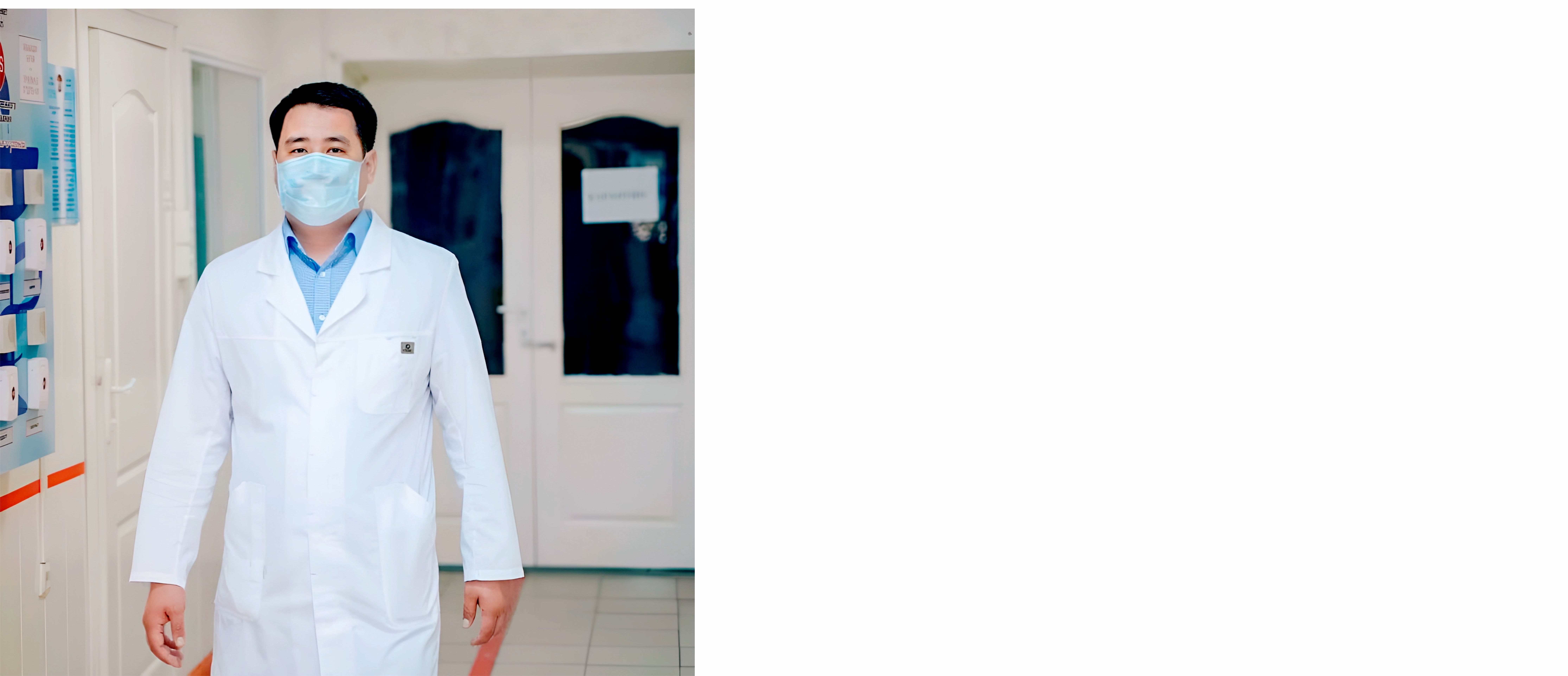Published:
Berik Esimkhanov, the Chief Doctor of the Maktaral District Hospital «Myrzakent», gained valuable experience working with new technologies and treatment methods at the Israeli state medical center «Rambam». He chose an internship under Professor Yoram Kluger.

Studying with a world-renowned surgeon who practices laparoscopic surgeries allowed Dr. Esimkhanov to master new types of modern surgical interventions that were not previously practiced at the Regional Clinical Hospital.
– At seven in the morning, I was already at the hospital, – says Berik Esimkhanov. – And so it went for six months. The workday started with patient rounds, and from nine o’clock – surgeries. Until six in the evening, I assisted in the operating room. After dinner, I could stay on duty if I had the strength and desire. I eagerly studied how the emergency room operated and participated in emergency surgeries conducted in the evenings.
The young doctor learned a lot, mastering new types of surgical interventions. At that time, only a few laparoscopic surgeries were performed at the Regional Clinical Hospital. After returning, Berik Nagashbekovich introduced laparoscopic colon resection in the proctology department. He also performed surgeries in the thoracic department without incisions, thereby reducing the patients' recovery time.
When Berik Esimkhanov was sent to Israel, the management of the medical institution had no doubt that the internship would be successful. From his first days at the hospital, he showed himself to be a responsible and reliable specialist. His development as a surgeon happened before the eyes of his colleagues.
Berik started working as a nurse in the operating unit of the hospital while being a third-year student at the South Kazakhstan Medical Academy.
– I was on night duty, handing instruments to the surgeons, – recalls Berik Esimkhanov. – I liked that in surgery, decisions on how to help a patient with a knife or gunshot wound, or even a simple appendicitis, are made very quickly. And then they immediately operate. This is not like a therapist who prescribes treatment, waits a week, and watches to see if it helps or not. In surgery, there can be no half-measures. And the result is immediately visible.
Starting from the fourth year, Berik assisted in the operating room, and from the fifth year, he operated independently. He remembers his first operation well. Like all novice surgeons, it was an appendectomy. Stitching stab wounds didn’t count.
By that time, Berik Nagashbekovich knew all the intricacies and possible nuances of surgical interventions, was psychologically prepared, and had become skilled at suturing. He used all his free time and night duties to practice stitching. He made stitches on sheets, leather sofa upholstery, and scraps of fabric he brought with him. Over time, he achieved perfect stitches. Every surgeon goes through this path.
The meticulousness with which the student approached any assigned task, his curiosity, desire to delve into details, and try everything himself, indicated that he would become a good specialist. It is not surprising that after receiving his diploma, he was invited to work at the hospital and was entrusted with duties in the emergency room. Three years later, he became the youngest senior surgeon of the hospital, and later the head of the operating unit.
Dr. Esimkhanov received a promotion after returning from Israel. Aspiring to participate in the «Bolashak» internship program, Berik Esimkhanov decided to focus on studying the experience of performing bloodless laparoscopic surgeries. The hospital had the necessary equipment. They began introducing innovative methods there in 2008, mastering gallbladder removal. The opportunity to practice modern surgical methods motivated the young surgeon to continue learning.
– An internship for a doctor who wants to learn something is a great opportunity not only to improve one’s qualifications but also to raise the overall level of medicine, – says Berik Esimkhanov. – By implementing modern treatment methods, our healthcare system reaches a global level. I agreed without hesitation to the offer to head the Maktaral District Hospital, clearly understanding that innovative approaches need to be implemented even in peripheral areas.
The first thing the new chief doctor did was study the material and technical base of the medical institution. It immediately became clear that there was no equipment allowing laparoscopic surgeries in the hospital. Action was needed to remedy the situation. The chief doctor promptly prepared a request for the most necessary items. The regional health department supported the initiative, and within a year, the hospital had a new endovideo-surgical apparatus.
Its presentation turned into a master class for hospital staff. For participation, the chief doctor invited the heads of the surgery, traumatology, and gynecology departments of the Regional Clinical Hospital. They conducted demonstrative surgeries for the staff.
Now the local surgeons have started working, quickly mastering the new technologies. Laparoscopic cholecystectomy and appendectomy, as well as laparoscopic gynecological surgeries, are now performed in the walls of the «Myrzakent» District Hospital. The chief doctor is always ready to assist, taking on the most challenging cases.
– I perform 3-4 surgeries a week, – shares Berik Esimkhanov. – We have three surgeons at the hospital, all of them senior. All have mastered laparoscopy and perform surgeries. We have recently hired another young surgeon. A doctor must constantly learn. While working at the Regional Clinical Hospital, I went for training every year. I was in Moscow, St. Petersburg, Kaunas. And not just at the state’s expense. I was willing to pay myself, understanding that without internships and learning from colleagues, it is impossible to develop. Innovative approaches are rapidly being introduced in medicine now, and it is important to stay in trend.